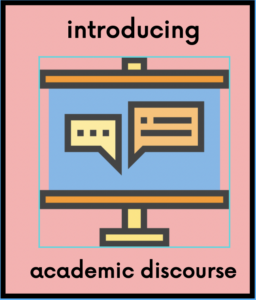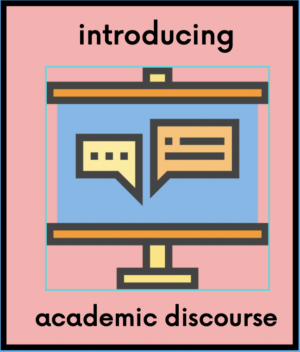
Teaching Notes:
One of the issues many students have throughout college classes is that they often don’t understand what an assignment is asking of them. Slow down the class to really help students understand what your assignment is asking. For this assignment you might take part of your ENA class to ask students to read the assignment prompt together as a class, then ask students to take a few minutes and read the prompt independently while they circle or underline words or phrases that seem unclear or confusing. Below in an essay assignment for an ENG101 class that ENA 101 students would work on. The questions for discussion can be modified to fit any assignment.
Directions for Students:
We went over this assignment briefly in our last class. Today, let’s focus a bit more carefully on it to make sure that before you get started you really understand what you are going to be writing about.
Assignment:
For this essay you will be writing a personal ethnography that examines a discourse community where you possess “insider status.” readings are meant to help you consider strategies for producing an effective essay.
In this 3-4 page essay you will use the idea of discourse communities to consider your own layered identity. You’ll use Gee’s or Swales definition of discourse/Discourse communities to examine a community that you identify with. You will use your experiences within a particular discourse community as evidence to support your interest in a particular issue or problem that demands attention and additional research. You will also incorporate at least one outside source for this paper cited in appropriate MLA citation and noted on a Works Cited page.
You might consider the following questions as you brainstorm topics for this assignment:
1. What discourse communities do you value? Why?
2. How have various communities shaped who you are and what you want to be?
3. How does your involvement in a particular community inform and/or justify your research interests, and the types of writing and reading skills needed to sustain that Interest?
Often when we write about issues that matter the most to us, we are motivated and inspired to share our work and personal experiences with others. The three questions listed above will require a good amount of self-analysis and reflection to answer, but most importantly your answers must consider communities that have shaped who you are and who you want to be.
Essentially, you’ll write about your personal interests while developing a focal point about an issue in your discourse community or within a discipline of your choice that would require additional inquiry in the future. Specifically, I’d like you to consider how a discourse community has shaped who you are, and who you want to be. But, most importantly you’ll make connections between personal experiences with a discourse community that might provoke political, social, cultural or disciplinary dialogue.
Questions for discussion:
- What does this assignment ask you to do?
- What are you supposed to write about?
- What type of evidence might you use to make your point?
- What would your thesis statement be?



Leave a Reply